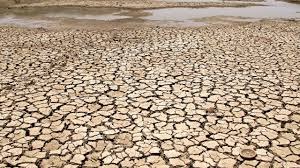As Zimbabwe grapples with the devastating effects of the El Niño weather pattern, over six million citizens are facing food insecurity, and the country’s projected economic growth has fallen from 3.5% to 2%.
The looming possibility of a La Niña event threatens to exacerbate the crisis, prompting urgent calls for action.
“The current El Niño weather pattern has left over six million Zimbabweans without enough food. Our expected economic growth has dropped from 3.5% to 2%. And there might be more trouble coming with a La Niña weather pattern. We need to act fast to prepare for these climate risks,” said Ayodele Odusola, the United Nations Development Programme (UNDP) Resident Representative for Zimbabwe.
However, amid these challenges, Odusola sees an opportunity for Zimbabwe to lead the way in finding climate solutions. Renewable energy, particularly solar, could be key to the country’s recovery and growth.
“The UNDP’s Solar for Health project has put solar power in over 1,000 health centres across the country. This shows how clean energy can create jobs and bring new technology,” he said
Odusola emphasized the need for “climate-smart” farming, highlighting the potential for drought-resistant crops and advanced irrigation techniques to boost food security.
He also called on Zimbabwean businesses to adopt green practices to attract investment and improve efficiency.
To fund these ambitious projects, Zimbabwe should seek international support, such as the Green Climate Fund, while ensuring strong plans for sustainable development.
“The challenges we face are big, but so are the opportunities. By tackling climate change, we can build a stronger, more sustainable and more prosperous Zimbabwe,” Odusola said.


